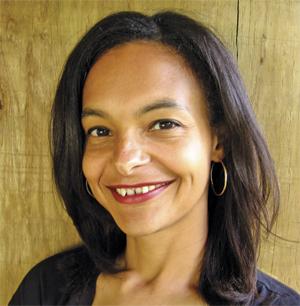The last time Suzette Mayr unleashed a surreal jolt of one-of-a-kind creativity, her vehicle (2004’s Venous Hum) was a frenzied comedy that mixed lesbo-centric suburban angst — workaholism, adultery, boredom — with outlandish characters, such as a cannibal mother and a literally blood-sucking teacher.
The University of Calgary prof has returned to her hometown’s outskirts for her fourth novel, Monoceros. On the surface it looks like another delirious romp, this time featuring a drag performer named Crepe Suzette and a campy sci-fi TV show called Sector Six (in which fearless but sexy Colonel Shakira pilots the Starship Monoceros through the stars). But the tone is notably sombre.
Monoceros begins with a suicide. Facing increased bullying and heartache at school and finding no help from the adults he confides in, Grade 12 student Patrick Furey hangs himself.
Over the next 250 pages, Mayr traces the impact of Furey’s death on his community, from the boy’s chief bully Petra Mai and his closeted guidance counsellor Walter, to his tormented mother and pot-smoking father. While there are scatterings of comedy, the novel is a sobering meditation on human nature.
In dedicating the novel to the memory of “DS and others like him,” Mayr is drawing from her own life. “This novel came about because about eight years ago my wife was working as a teacher in a Catholic high school where a [student] committed suicide after being bullied for being gay,” she explains.
“While she worked at this school she was necessarily in the closet because she was a lesbian and she would have lost her job if she’d been outed. She didn’t know the boy except by sight, but his death affected her profoundly — to the point that she quit her job, made a radical career change, and decided to dedicate her life to examining homophobia in publicly funded Canadian Catholic schools,” Mayr says.
“Witnessing her grief at home in private and her inability to express this grief in a proper, public way was a real education for me, and I wondered a lot about how the other closeted teachers and staff in the school were coping.”
The focus of Mayr’s novel is a hot-button issue, but it’s one she has been mulling over for years. “I started this book eight years ago, long before Glee and the It Gets Better campaign. What I really wanted to avoid from the very beginning was a book that looked like it was treating suicide in a flippant way. I realized early on that the book would have its funny moments but that the humour would have to be organic; it had to be sympathetic. I also really, really didn’t want to end up creating a text about a dead, doomed LGBTQ person like in Brokeback Mountain,” she adds.
“I didn’t want this story about a dead gay boy to fit into that strange, quasi-genre of queers being punished for living their lives and expressing themselves honestly.”
With its emphasis on suicide and closeted school officials, some may complain that Mayr’s story denies Canada’s history of progressive sexual politics. Mayr believes Canada has more than one simple story: “In Alberta, Ontario and Saskatchewan, there is still a publicly funded Catholic separate school system where it is perfectly all right to fire a teacher or staff member for being LGBTQ, where it’s perfectly all right to forbid students from creating gay-straight alliance clubs, and where homophobia is accepted as an institutional fact of life. Canada is really pathetic in this way. It’s just gross and embarrassing, and a big ugly secret.”
Even with its grim subject, Monoceros contains both hope and wild comic exuberance. “I really believe in that notion that ‘comedy is tragedy at a distance.’ I think that a text that is purely tragedy or purely comedy isn’t a true representation of life, and I just can’t write that way,” she says.
“There are so many times when I’ve witnessed the two genres mingling in real life — people giggling during funerals, for example. I also have to admit that my own sense of humour is a bit kinked, and I don’t necessarily find things funny that other people find funny.”

 Why you can trust Xtra
Why you can trust Xtra


